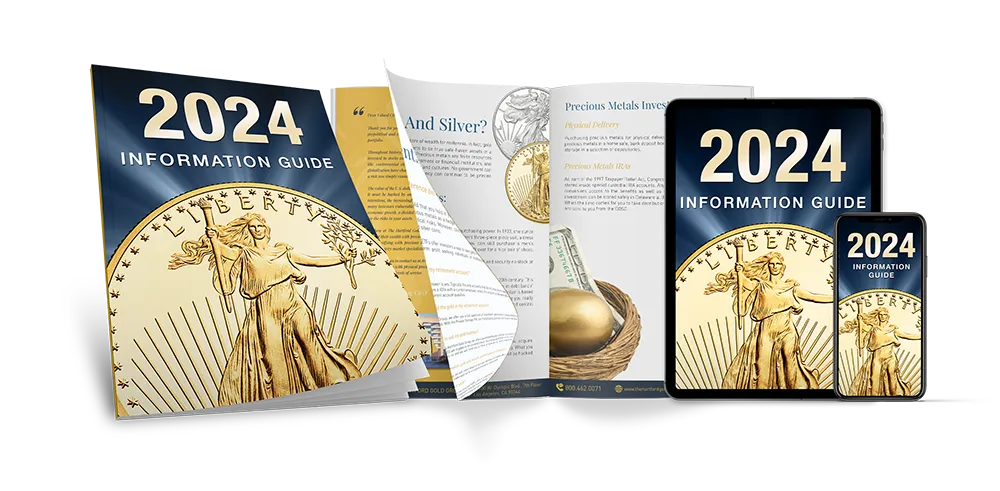Could we have a trade war on our hands?
The stock market was knocked back again last week after President Trump signaled his intent, in his usual colorful way, to increase tariffs aggressively on base metals like steel and aluminum.
Suddenly, Wall Street is digesting the possibility of a full-blown global trade war. Another week with investors caught completely off guard.
The current administration argues that free trade has hollowed out America’s industrial base and saddled the country with huge deficits. The proposed import tariffs are designed to make domestic purchases of steel and aluminum more attractive.
President Trump campaigned on a promise to make up lost ground with an “America First” trade policy. He has consistently favored policies that lessen American reliance on other nations for critical basic commodities such as oil, so this sudden announcement is in line with his priorities.
However, steep tariffs on imported base metals could have profoundly unpredictable consequences for the global economy and American workers.
For now, Commerce Secretary Wilbur Ross is attempting to downplay the ramifications of this announcement and placate trading partners until more information is available.
He has a big job on his hands! A sharply-elbowed diplomatic war of words has already broken out.
The European Union (EU) is threatening to retaliate against any stiff new steel and aluminum tariffs. The EU recently warned that American-made goods like Kentucky bourbon and Harley-Davidson motorcycles would be treated the same way if the tariffs were enforced. Officials from Australia, Canada and other American trade partners echoed the EU’s retaliatory threats.
Of course, we take no political side on these policies and wish our President and country every success, every day.
Our only concern is this: making sure your retirement portfolio is prepared to handle the kind of unexpected shocks that things like global trade wars can hand you.
INTERNATIONAL TRADE WARS AND GOLD
What does a full-scale international trade war mean for gold?
A trade war could spur demand for safe-haven assets like physical gold and silver. History repeats itself, and the landscape today for paper-based assets is becoming more hostile.
Saxo Bank analyst Ole Hansen writes, ”if a trade war becomes a reality, it could push up inflation and growth down and that should ease the Fed’s aggressiveness, which is why it has become the focus of the gold market.”
The trade-related market churning has been a catalyst for some investors’ flight to the safety of precious metals. Gold and silver also saw buying from investors looking to hedge against inflationary pressures that are typically associated with global trade tensions.
TRADE WAR: THE POSSIBLE RAMIFICATIONS
The economics of trade wars are hard to pin down because of the complexity of both economic and political factors. Trade bluster is par for the course, so partly we will just have to wait and see how this scenario plays out.
That said, some experts fret that this particular trade war could put America on a losing trajectory.
City University economist and columnist Paul Krugman is clear in his feelings. “We can’t win a trade war,” he says. “Cycles of retaliation would shrink overall world trade, making the world as a whole, America very much included, poorer. ”
Peterson Institute for International Economics Monica de Bolle writes, “the losers are plentiful, and there are actually way more losers than winners.” De Bolle warns because steel is used in a wide array of products, numerous American businesses will be forced to increase prices and fire workers to make up for the higher costs a 25% percent tariff would impose.
Workers at companies ranging from airplanes to products packaged in aerosol cans face layoffs from the 10% tariff on imported aluminum. In fact, she says much of the damage from these tariffs will fall disproportionately on smaller specialized companies less able to absorb a 25% price hike on a vital raw material.
National Retail Federation VP Jonathan Gold thinks consumer-facing sectors of the economy such as retailers could be hit especially hard.
LEARNING LESSONS FROM HISTORY
Moody’s Investors Service economist Atsi Sheth says that in the long haul, tariffs may harm the industries they are supposed to prop up.
In recent memory, President George W. Bush imposed tariffs of up to 30% on steel imports, intending them to last three years, but lifted them earlier than expected after European trading partners threatened retaliation.
One retrospective study concluded higher steel prices cost more jobs than the number of people employed in the steel industry at the time.
Fast forward to today and many experts warn that if Trump’s policies lead to an international trade war, a global recession could certainly follow. In addition, a trade war could inflict significant damage to growth and undo the promised economic stimulus from the $1.5 trillion tax cut proved last year.
DON’T LET YOUR FINANCIAL FUTURE BE THE NEXT TRADE WAR CASUALTY
These are troubling times for most investors.
Market uncertainty and volatility are on the rise. The stock market is priced to perfection. Trade wars have serious consequences for millions of hard-working Americans and the scourges of inflation and recession, long dormant, are showing signs of coming back.
Gold deserves consideration for your portfolio because it offers a hedge against inflation, broader diversification benefits and a level of peace of mind no paper currency in the middle of a trade war can offer.
Why should your financial future be a casualty in the next trade war?
Leaving your hard-earned wealth vulnerable at the present time is not a good idea and owning gold and silver can be a prudent way to help insulate it if a trade war breaks out.






